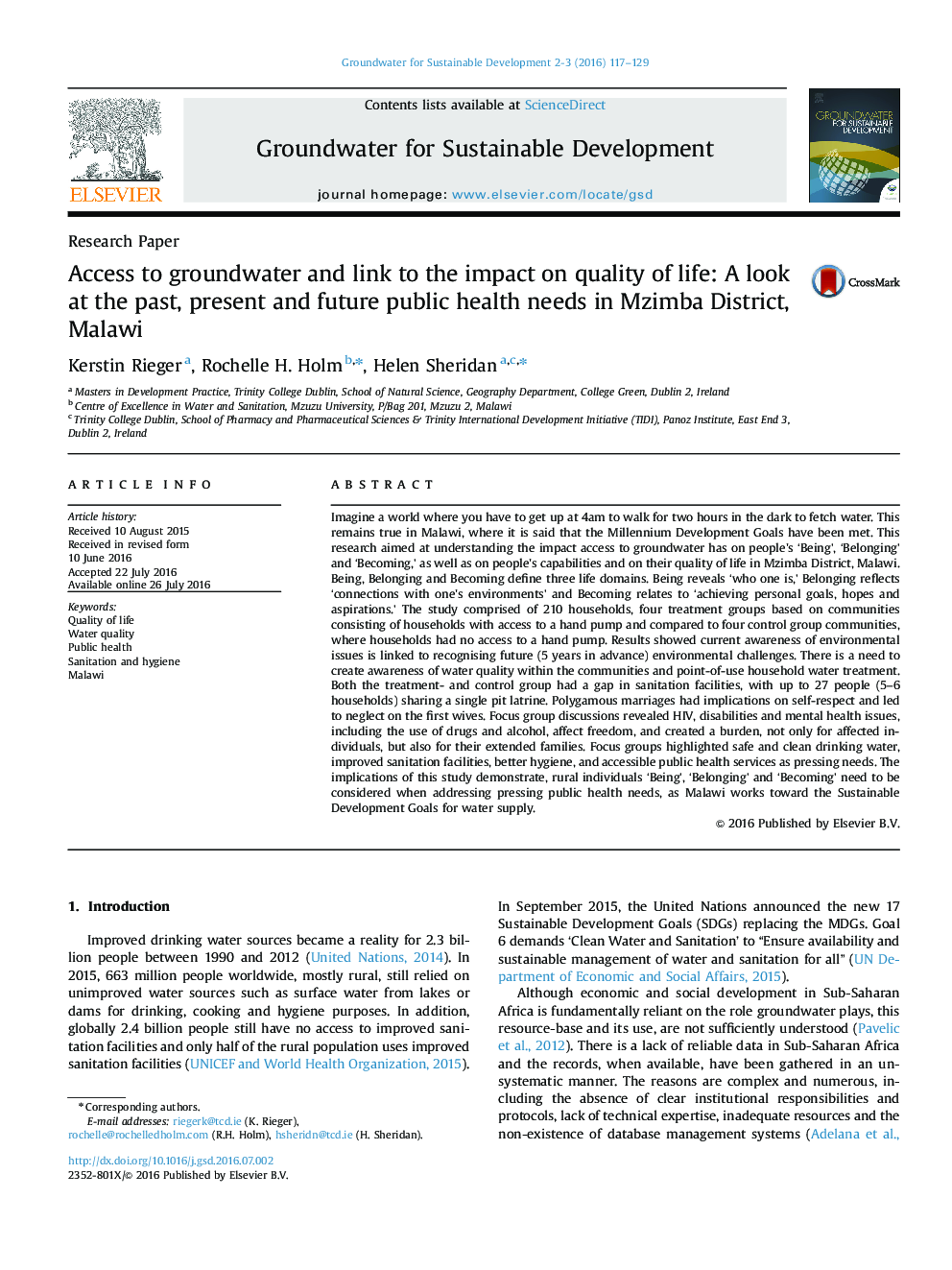| کد مقاله | کد نشریه | سال انتشار | مقاله انگلیسی | نسخه تمام متن |
|---|---|---|---|---|
| 4476261 | 1622679 | 2016 | 13 صفحه PDF | دانلود رایگان |
• Access to groundwater impacts the three life-domains: Being, Belonging and Becoming.
• Disconnect between water quality and individuals perception of safe drinking water.
• Communities stressed clean water, sanitation and hospitals as top health needs.
• High level of toilet sharing, also impacted by environmental issues.
• Imagination exercise reveals desire of male respondents for a greener village.
Imagine a world where you have to get up at 4am to walk for two hours in the dark to fetch water. This remains true in Malawi, where it is said that the Millennium Development Goals have been met. This research aimed at understanding the impact access to groundwater has on people's ‘Being’, ‘Belonging’ and ‘Becoming,’ as well as on people's capabilities and on their quality of life in Mzimba District, Malawi. Being, Belonging and Becoming define three life domains. Being reveals ‘who one is,’ Belonging reflects ‘connections with one's environments’ and Becoming relates to ‘achieving personal goals, hopes and aspirations.’ The study comprised of 210 households, four treatment groups based on communities consisting of households with access to a hand pump and compared to four control group communities, where households had no access to a hand pump. Results showed current awareness of environmental issues is linked to recognising future (5 years in advance) environmental challenges. There is a need to create awareness of water quality within the communities and point-of-use household water treatment. Both the treatment- and control group had a gap in sanitation facilities, with up to 27 people (5–6 households) sharing a single pit latrine. Polygamous marriages had implications on self-respect and led to neglect on the first wives. Focus group discussions revealed HIV, disabilities and mental health issues, including the use of drugs and alcohol, affect freedom, and created a burden, not only for affected individuals, but also for their extended families. Focus groups highlighted safe and clean drinking water, improved sanitation facilities, better hygiene, and accessible public health services as pressing needs. The implications of this study demonstrate, rural individuals ‘Being’, ‘Belonging’ and ‘Becoming’ need to be considered when addressing pressing public health needs, as Malawi works toward the Sustainable Development Goals for water supply.
Figure optionsDownload as PowerPoint slide
Journal: Groundwater for Sustainable Development - Volumes 2–3, August–September 2016, Pages 117–129
